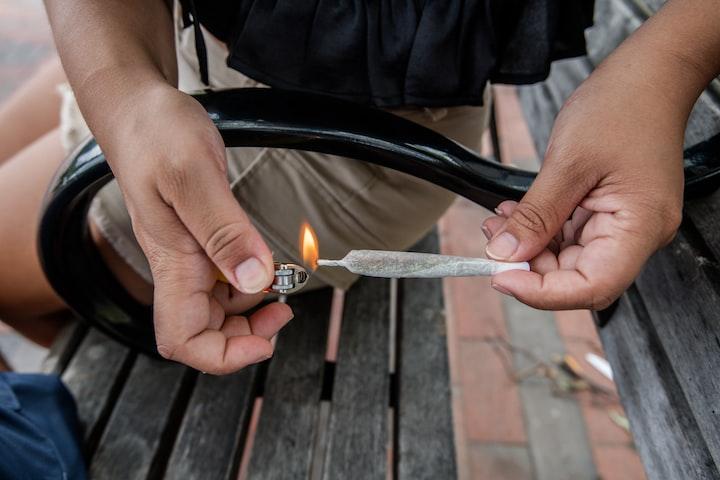Bipolar disorder is a mental illness that causes extreme mood swings. The highs, or manic episodes, can last for days or even weeks. During these times, people with bipolar disorder may feel very happy and have a lot of energy. They may also be more irritable than usual and have trouble sleeping. The lows, or depressive episodes, can last for two weeks or longer. People with bipolar disorder may feel very sad and have little energy during these times.
Bipolar disorder affects about 2% of the population. It is equally common in men and women. People with bipolar disorder usually develop the condition in their late teens or early twenties, but it can occur at any age. There is no single cause of bipolar disorder; instead, it is thought to be caused by a combination of genetic and environmental factors.
Bipolar disorder can be difficult to diagnose because the symptoms can vary so much from person to person. For example, some people with bipolar disorder only experience manic episodes while others also experience depressive episodes. Some people also have mixed episodes where they experience both high and low moods at the same time.
It Gives You Strength, Tenacity, or Chutzpah
Being Bipolar
When most people think of bipolar disorder, they think of the lows associated with depression. But there are also highs associated with mania, and while these can be disruptive and even dangerous, they can also be a source of strength, tenacity, or chutzpah.
For example, people in a manic state may be more likely to take risks. This could lead to financial ruin or reckless behavior, but it could also lead to entrepreneurial success or groundbreaking discoveries. In fact, some research suggests that bipolar disorder may be overrepresented among entrepreneurs.
People in a manic state may also experience what is known as hypergraphia, which is an overwhelming urge to write or create art. This could manifest as compulsive journaling or an obsession with a creative project. Again, this could be disruptive if it leads to insomnia or neglect of other responsibilities; but if harnessed correctly, it could result in beautiful works of art or literature.
It Makes You More Proactive About Your Overall Health
When you have bipolar disorder, you are more likely to be proactive about your overall health. You are more likely to see a doctor regularly, to take your medications as prescribed, and to follow a healthy lifestyle. You may also be more likely to pay attention to your mental health and to seek treatment if needed.
The reason for this is that bipolar disorder can have a major impact on your physical health. People with bipolar disorder are at an increased risk for developing physical health problems, such as heart disease, obesity, diabetes, and high blood pressure. There is also evidence that suggests that people with bipolar disorder are more likely to die prematurely than those without the condition.
Because of this, it’s important to be proactive about your physical health if you have bipolar disorder. This means regular check-ups with your doctor, taking medications as prescribed, eating a healthy diet, exercising regularly, and avoiding substance abuse. By taking care of yourself physically, you can help reduce the symptoms of bipolar disorder and improve your overall wellbeing.
It Gives You Empathy For Other People
Empathy is defined as “the ability to understand and share the feelings of another.” And while most people with bipolar disorder will never wish their condition on anyone else, they can often relate to others who are dealing with similar challenges in their own lives.
This empathy can manifest itself in a number of ways. For example, someone with bipolar disorder might be quick to comfort a friend who is going through a tough time because they know exactly how that feels. They might also be more understanding than others when it comes to mental health issues because they’ve been there themselves.
Of course, not everyone with bipolar disorder experiences empathy in the same way – just like not everyone experiences the condition in the same way. But many people find that this trait is one of the few positive aspects of living with bipolar disorder. So if you’re struggling right now, remember that your empathy could one day help make someone else’s life just a little bit easier.
It Helps You Know Who Your Real Friends Are
When you’re bipolar, you know who your real friends are. The people who stick by you during your lows are the ones worth keeping around. Your friends will see you at your best and worst, and they’ll still be there for you. They’ll be the ones to help pick you up when you’re feeling down and celebrate with you when you’re on top of the world.
Bipolar disorder can be a very isolating illness, but having supportive friends can make all the difference. With their help, you can get through anything.
It Gives You The Ability To Help Others Who Have Bipolar Disorder
If you have bipolar disorder, you know how difficult it can be to manage the condition. But did you know that your experience can actually be a valuable asset in helping others who are dealing with bipolar disorder?
Here are some ways that your experience with bipolar disorder can help others:
1. You Can Offer Firsthand Experience and Understanding
When you talk to someone with bipolar disorder, they may feel like nobody really understands what they’re going through. But because you have the condition yourself, you can offer them your firsthand experience and understanding. This can be incredibly helpful and reassuring for them.
2. You Can Share Tips on How to Cope With Bipolar Disorder
Since you’ve been living with bipolar disorder for a while, you’ve likely developed some good coping strategies. Sharing these tips with others can help them immensely in dealing with their own condition.
